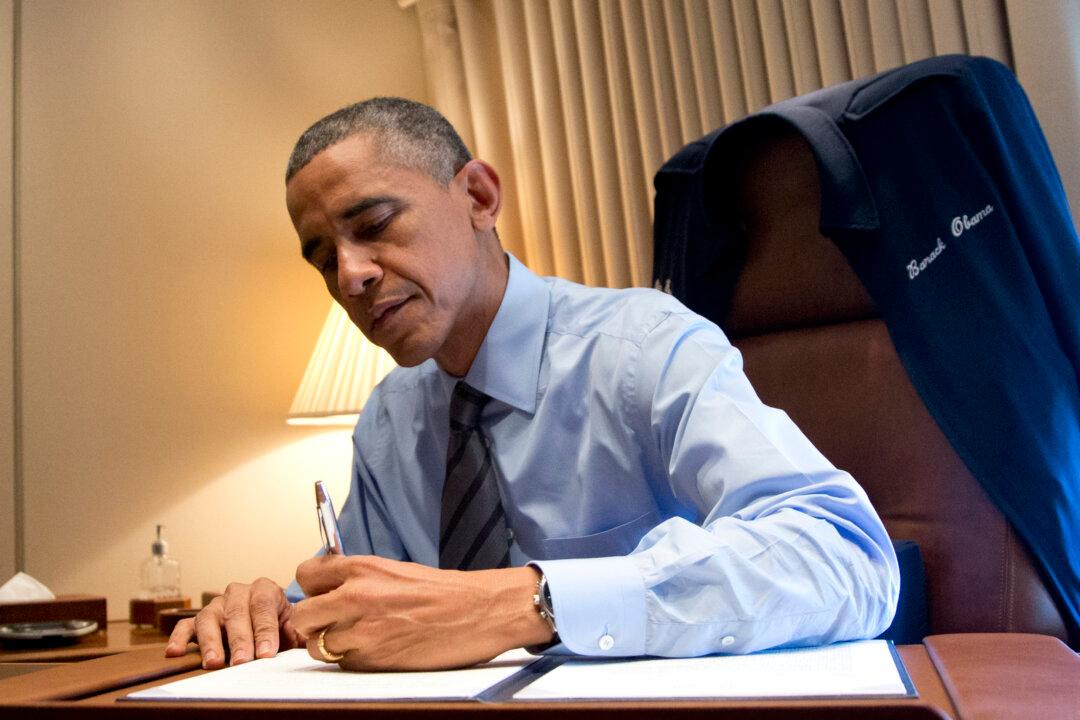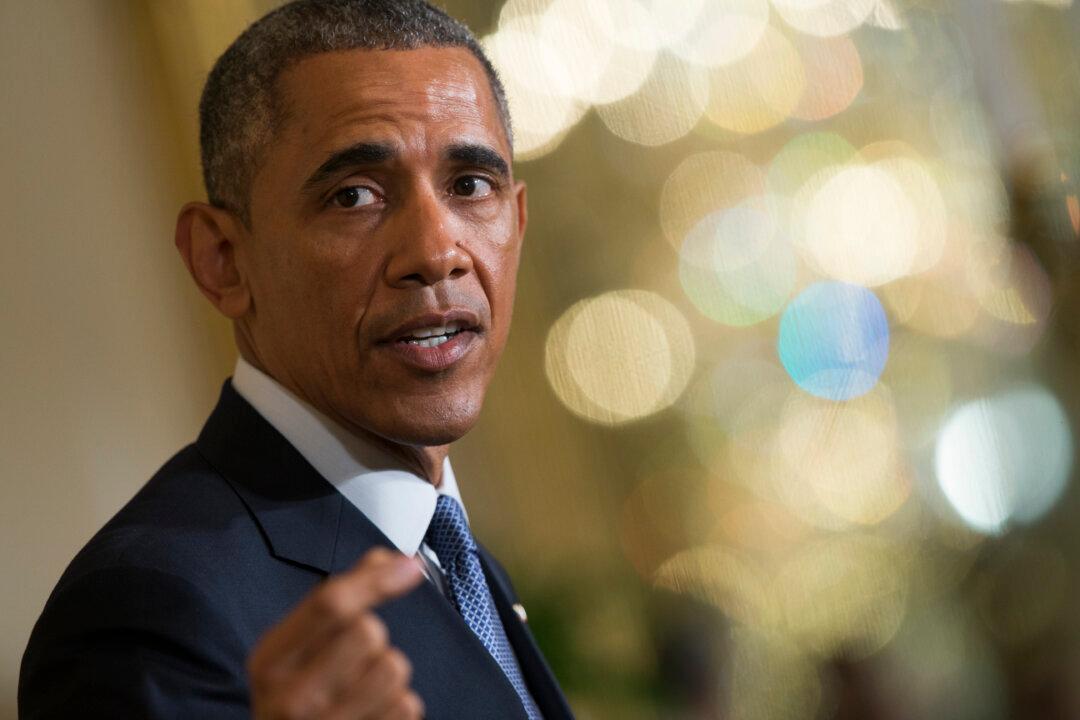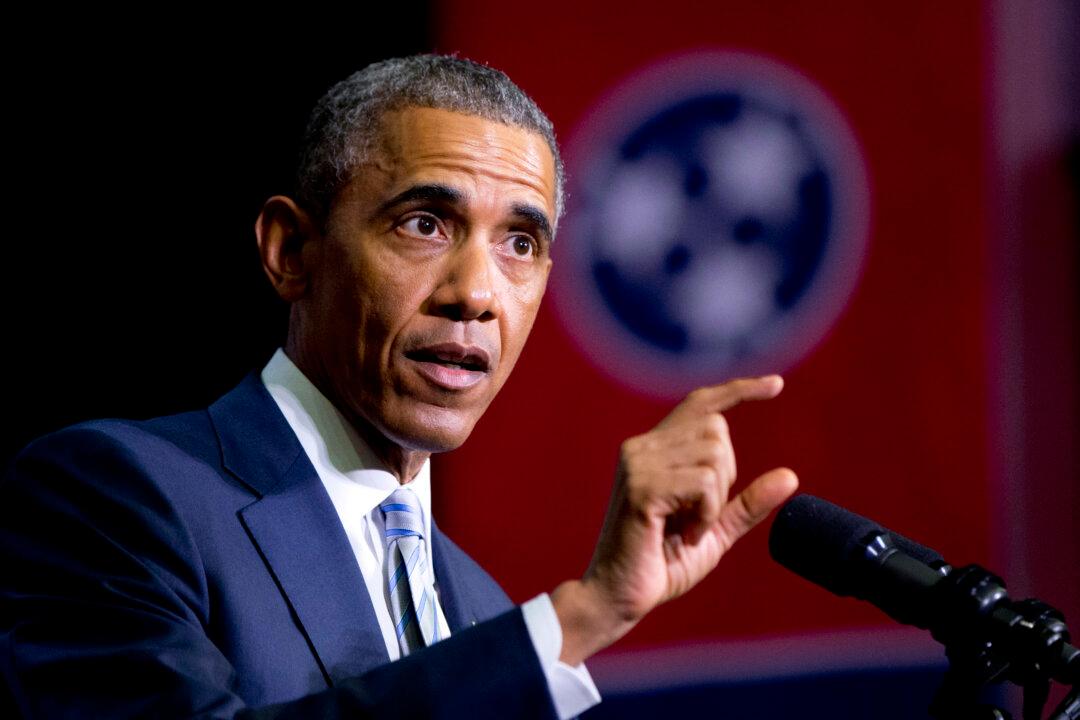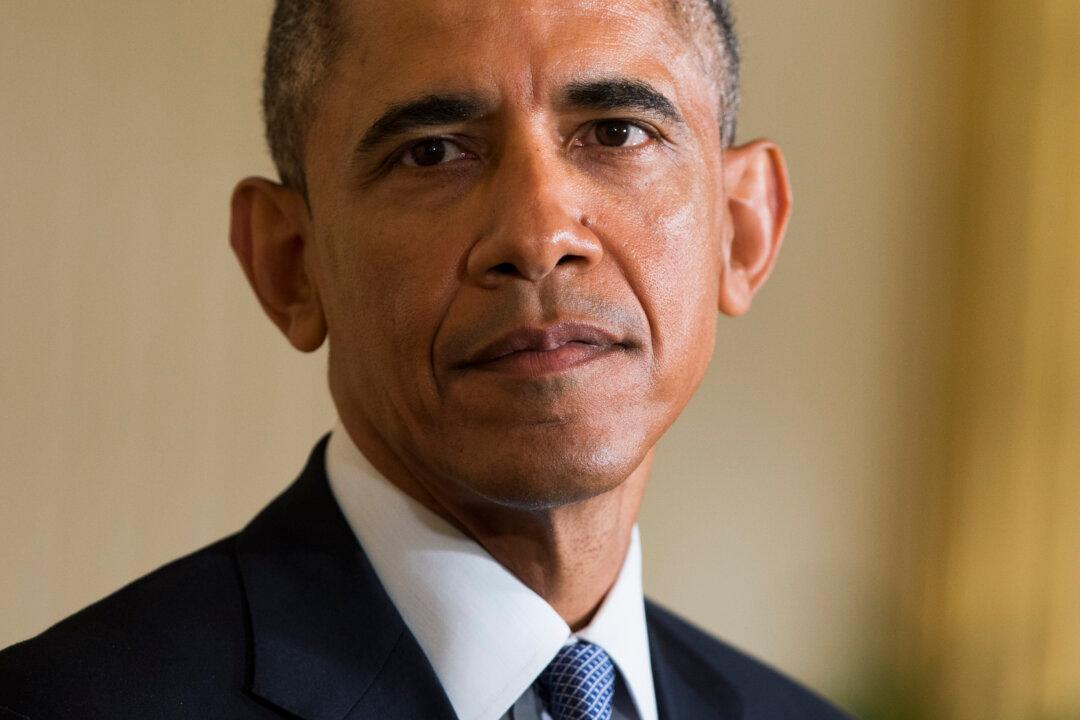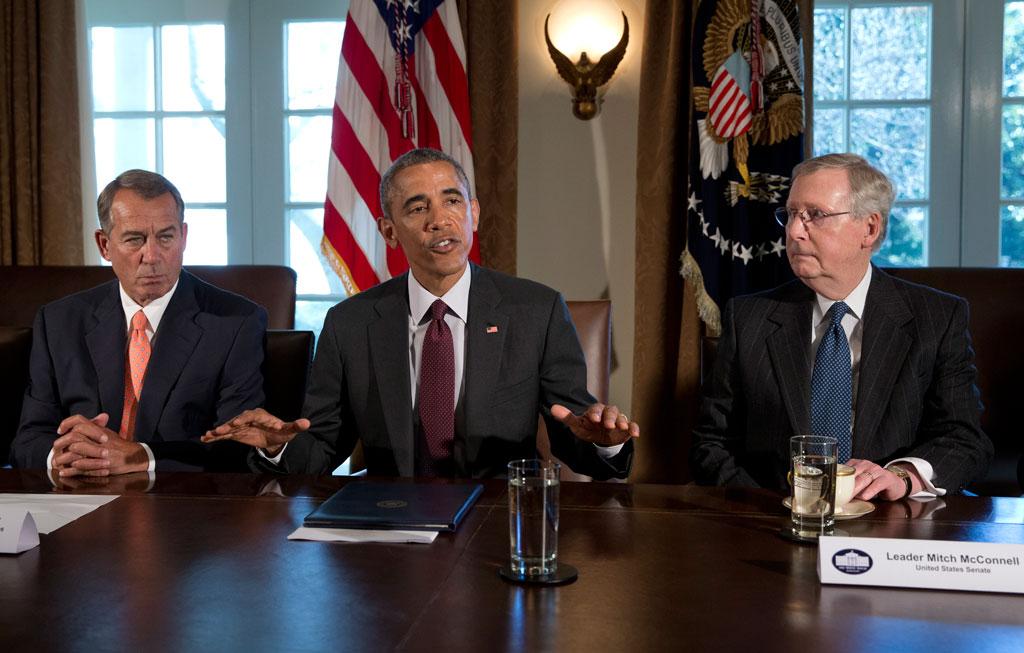WASHINGTON—President Barack Obama’s carefully cultivated Hispanic coalition was starting to splinter.
Immigration legislation was going nowhere. Deportations under Obama were nearing 2 million. And the president was resisting calls to use executive action.
Then in early March, frustration from usually reliable supporters seemed to reach a breaking point when a prominent immigration advocate derided Obama as “deporter in chief.”
The White House scrambled. Obama summoned three Hispanic lawmakers to the Oval Office to say he was ordering Homeland Security Secretary Jeh Johnson to study how the administration could enforce immigration laws “more humanely.”
That order set off nearly nine months of intense deliberations over the scope of Obama’s presidential powers and political wrangling between the White House and Democrats.
Obama would ultimately postpone his actions until after the midterm elections, unveiling sweeping measures Thursday to spare nearly 5 million people in the U.S. illegally from deportation.
This account of Obama’s deliberations is based on roughly two dozen interviews with lawmakers, administration officials, congressional aides and immigration advocates. Some spoke on the condition of anonymity to discuss private conversations with Obama his top advisers.
Last Gasp for Legislation
Throughout the first half of 2014, Obama was holding out hope that Congress would still pass broader legislation. In private conversations, Boehner had suggested there was a narrow window in early summer when the House might take up immigration, following approval of a bipartisan bill in the Senate last year. Obama didn’t object to the summer timeline, but was concerned Boehner might be stalling.
Meanwhile, law enforcement was reporting a surge of undocumented minors arriving from Central America. Critics quickly pinned the blame on Obama’s 2012 decision to defer deportations for some young people, saying it had encouraged illegal immigration.
Any last hopes were derailed on June 10, when Rep. Eric Cantor, the Republican majority leader from Virginia, suffered a stunning primary defeat that many blamed on his support — however tepid — for immigration legislation.
“That was the moment we realized immigration reform was dead, and we had to focus on Obama,” said Kica Matos, a prominent immigration advocate.
Two weeks after Cantor’s defeat, Boehner told Obama there would be no vote in 2014.
Obama gathered immigration advocates in the Roosevelt Room. “You could tell he was pissed, miffed,” said Frank Sharry of the advocacy group America’s Voice. As the meeting closed, advocates were escorted to the Rose Garden for a hastily arranged announcement: Obama planned to circumvent Congress.
“If Congress will not do their job, at least we can do ours,” he declared.
Summer of Disconnect
As the White House began scouring its options, a Democratic rift was forming on Capitol Hill.
Obama had given himself an end-of-summer deadline. But some Democrats feared a pre-election announcement would hurt candidates in conservative states where Democrats were fighting their toughest races.
The issue chased Democratic candidates wherever they went. GOP Senate candidates aired ads accusing Democrats of being complicit in an Obama plot to flout the Constitution. Democratic lawmakers began making quiet, personal appeals to White House chief of staff Denis McDonough to delay.
David Simas, Obama’s political director, called the Democratic Senatorial Campaign Committee around Labor Day to ask how immigration was polling in key races. Surveys from states like Iowa carried a grim warning: Obama’s impending actions were deeply unpopular, and voters weren’t buying the party’s attempts to sell it.
At 8:59 a.m. on a Saturday in early September, an email from the White House landed in the inboxes of top Democratic Senate staffers: “Are you available to connect quickly, in the next 30 minutes?” Obama had decided to delay.
The Plan
Behind the scenes, Homeland Security Secretary Johnson was running an intensely secretive process to determine what actions Obama could take. He even ordered that documents be sent by courier to meeting participants, rather than emailed.
Administration officials said Obama largely settled on the outlines of his plan this summer. But he kept pushing for more options to defer deportations for agricultural workers and parents of some young immigrants. For both groups, administration lawyers reached the same conclusion: Obama couldn’t legally do it.
Three days after the election, Obama invited congressional leaders for lunch. Administration officials said Boehner made one last attempt to stop Obama, suggesting a possible House vote by the spring. A GOP aide disputed that Boehner offered a specific timeline.
As the president spoke live to the nation Thursday night, pro-immigration demonstrators outside the White House gates draped American flags over themselves, parading signs in bold type: “Gracias, Presidente Obama.” His speechwriter, Cody Keenan, slipped out of his tie and into the crowd unnoticed, hoping to savor the moment.
From The Associated Press. AP writers Erica Werner and Alicia A. Caldwell contributed to this report.
